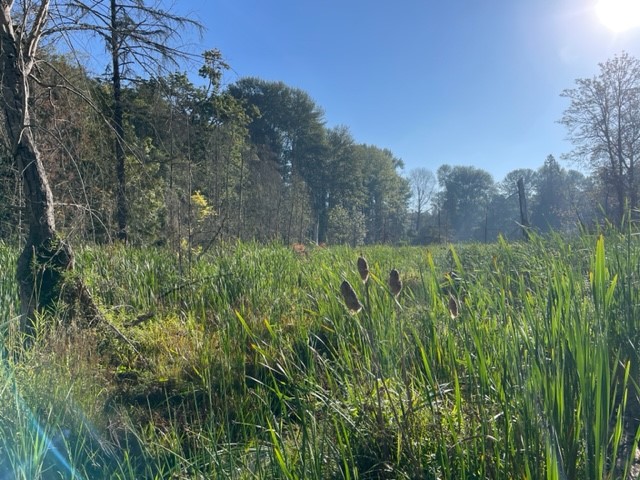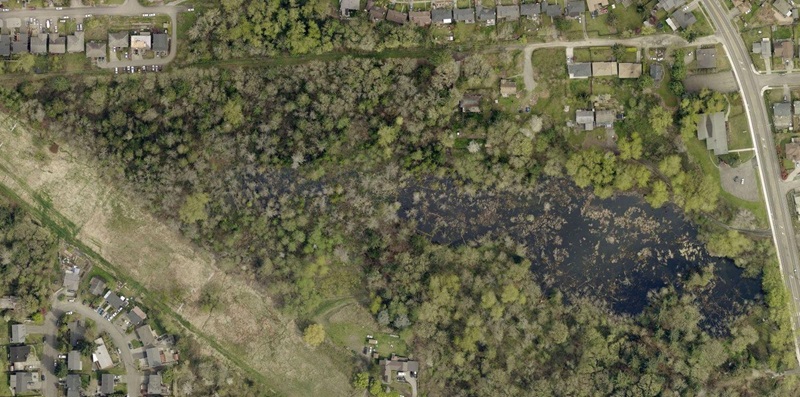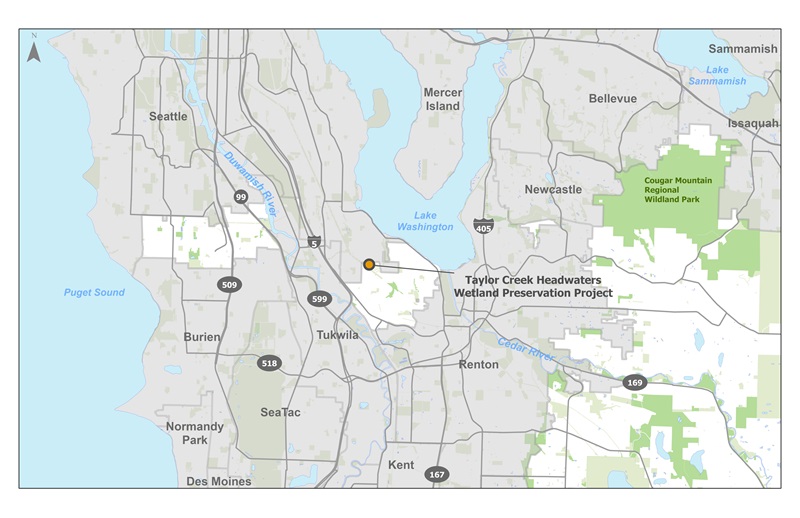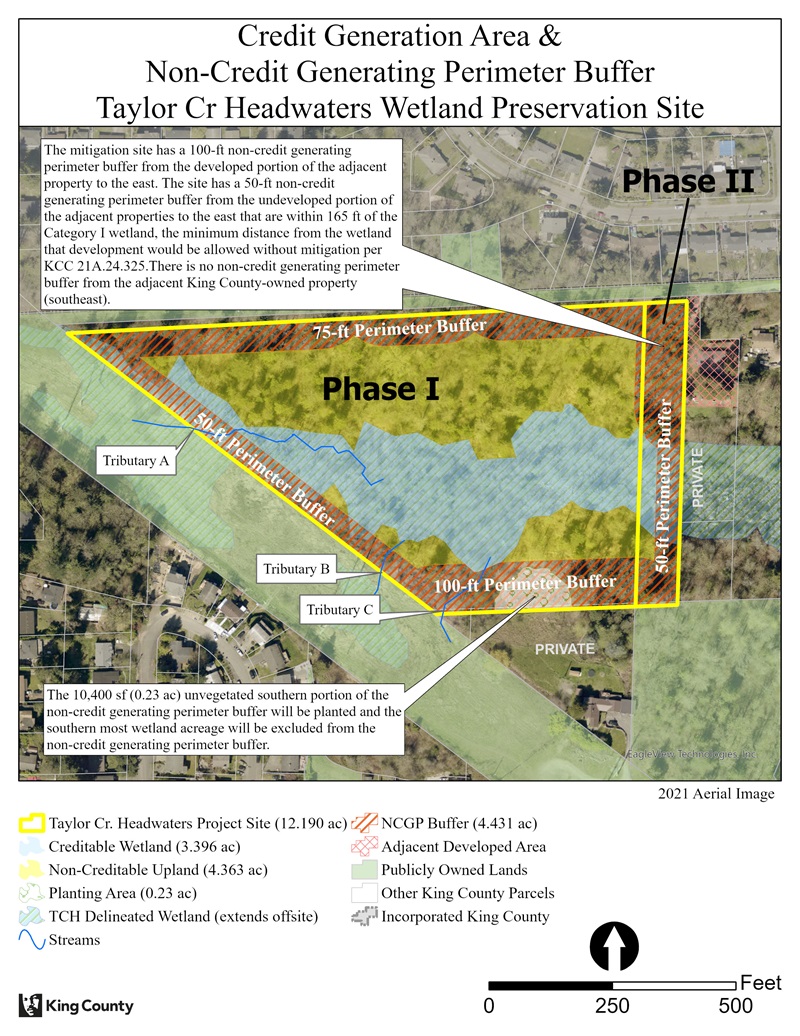Taylor Creek Headwaters Wetland Preservation Project
Project description
The 12.19-acre Taylor Creek Headwaters Wetland Preservation Project, located south of Seattle and northwest of Renton, in the Cedar River / Lake Washington Service Area, was acquired by King County to preserve the wetland and its buffer. Phase I of this project was acquired in 2015 (11 acres) and Phase II was acquired in 2021 (1.19 acres). King County’s Mitigation Reserve Program will earn in-lieu fee mitigation credits through the preservation and stewardship of 4.14 acres of intact Category I wetland and 8.05 acres of surrounding upland in the Skyway area of unincorporated King County. This 12.19-acre site is now permanently protected from development of any kind.

Wetland at Taylor Creek Headwaters Wetland Preservation Project
Vicinity map
Background
The Cedar River-Lake Washington watershed is one of the most populated watersheds in the state and much of the original wetland habitat has been altered or filled. Taylor Creek Headwaters Wetland Preservation Project provided a rare opportunity to save a high functioning urban wetland from imminent development.
Taylor Creek is one of the few direct tributaries to Lake Washington utilized by Chinook salmon. Protecting its headwaters wetland will provide hydrologic and water quality functions to support salmon populations.
Taylor Creek Headwaters Wetland is a depressional flow-through wetland with a sizable buffer of mature mixed coniferous forest that is situated at the headwaters of Taylor Creek, a perennial salmon-bearing tributary stream to Lake Washington. Taylor Creek Headwaters wetland is high-functioning, providing a range of water quality, hydrologic, and habitat functions in a moderate density urban landscape. The wetland is classified as a North Pacific Hardwood-Conifer Swamp and contains forested, scrub-shrub, and emergent wetland habitats dominated by Western red-cedar, Oregon ash, and red alder. Standing snags, downed woody debris and other special habitat features in the wetland on the property provide an opportunity to support amphibians, reptiles, fish, birds, and mammals.
 Translate
Translate


